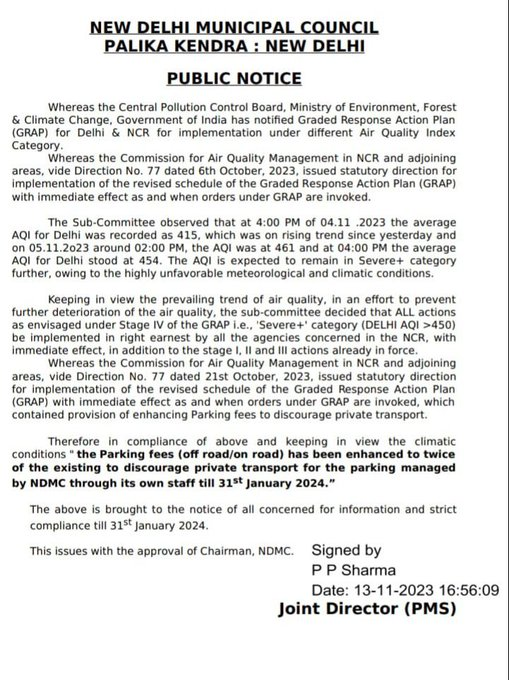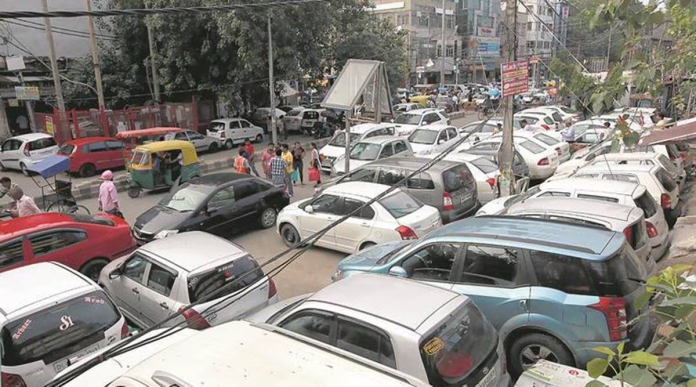Delhi Parking Fees: Due to increasing pollution, New Delhi Municipal Council (NDMC) has decided to double the parking charges (off road/on road) from the existing parking to promote private transportation for parking managed by NDMC through its own staff.
Has been extended till. A tweet by the New Delhi Municipal Council (NDMC) on Monday announced its decision to double parking charges (both off-road and on-road) till January 31, 2024. The move aims to manage parking more effectively by reducing private transportation.
Now the decision will have to be doubled
Now instead of Rs 20 per hour, car drivers will have to pay Rs 40 per hour. Along with this, two-wheeler drivers will have to pay Rs 20 per hour instead of Rs 10 per hour, while the monthly parking fee for cars will now be Rs 4,000 instead of Rs 2,000, and two-wheeler drivers will have to pay Rs 2,000 instead of Rs 1,000. . The increased charges will be applicable till January 31, 2024.

NDMC official said that NDMC has about 100 parking lots. Out of these, 38 parking lots are maintained by the Parking Management System Department of NDMC. Municipal assistants of NDMC are posted here. This fee will be doubled in these parking lots. Those visiting markets like Connaught Place and Gol Market will not have to pay much fee at present.
Let us tell you that despite the initial relief due to rain, an increase in pollution levels was seen again in Delhi on Monday. Smoke hung over the city and according to Swiss air quality monitoring company IQAir, Delhi was the most polluted city globally that day. Pollution increased after Diwali celebrations, with residents violating the ban on firecrackers.
On Sunday, Diwali, Delhi’s AQI recorded its best level in eight years, with its 24-hour average at 218 at 4 pm. But the respite was short-lived as pollution levels increased sharply amid low temperatures due to bursting of firecrackers late Sunday night. On Monday, the AQI rose to 358 by 4 pm, indicating ‘very poor’ air quality. In particular, the concentration of PM 2.5, a fine particle that causes respiratory problems, is six to seven times higher than the safe limit in some areas.













